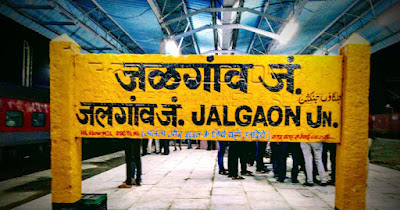Language Politics
The testimony of younger adults shows that English continues to occupy the top spot in a hierarchy of languages in India.
Vipul DANDAGE / CC BY-SA 4.0
Feb 20. 2020
Mohini Gupta
The testimony of younger adults shows that English continues to occupy the top spot in a hierarchy of languages in India.
Vipul DANDAGE / CC BY-SA 4.0
Feb 20. 2020
Mohini Gupta
The fact
that I
am writing to you
in English
already falsifies what I
wanted to tell you.
My subject:
how to explain to you that I
don’t belong to English
though I belong nowhere else,
if not here
in English.
am writing to you
in English
already falsifies what I
wanted to tell you.
My subject:
how to explain to you that I
don’t belong to English
though I belong nowhere else,
if not here
in English.
— "Dedication", Gustavo
Pérez Firmat
On February 21, 1952, Pakistan’s police opened fire on students of University of Dhaka (in erstwhile East Pakistan) protesting against the imposition of Urdu. The Bengali language movement demanded the inclusion of Bengali as a national language of Pakistan, in addition to Urdu, which was the mother tongue of only 3-4% of the nation, while Bengali was spoken by more than 50% of the population.
On January 9, 1998, Canada-based Rafiqul Islam wrote to the United Nations, asking them to commemorate the 1952 killings in Dhaka and mark the day to preserve languages from around the world from extinction. This led to the declaration of 21st February as International Mother Language Day. A dark day in the history of language movements, but also one full of hope. A hope that led to the creation of a new nation, Bangladesh, in 1971.
On January 9, 1998, Canada-based Rafiqul Islam wrote to the United Nations, asking them to commemorate the 1952 killings in Dhaka and mark the day to preserve languages from around the world from extinction. This led to the declaration of 21st February as International Mother Language Day. A dark day in the history of language movements, but also one full of hope. A hope that led to the creation of a new nation, Bangladesh, in 1971.
............
The English vs “mother tongue” debate is not limited to South Asia. In 1986, the Kenyan writer Ngũgĩ wa Thiong’o wrote in Decolonising the Mind about the humiliation of speaking Gĩkũyũ in the vicinity of his school. In the book, he laments the cognitive dissonance in the mind of the Kenyan child because their language in the classroom – a cerebral experience – was not their language at home – an emotional experience. Thiong’o took a radical step later in his life when he decided to abandon English, and switched to writing in Swahili and Gĩkũyũ.
We don’t have to take radical steps, but here is a question we must continue to ask ourselves today: Can we not fall into the trap of language hierarchies, and do better by our mother tongues?
Read full article: scrollin
Related article:
Rajasthani: How a mother language can be lost, and how ‘folk’ histories can reclaim it
We don’t have to take radical steps, but here is a question we must continue to ask ourselves today: Can we not fall into the trap of language hierarchies, and do better by our mother tongues?
Read full article: scrollin
Related article:
Rajasthani: How a mother language can be lost, and how ‘folk’ histories can reclaim it


No comments:
Post a Comment